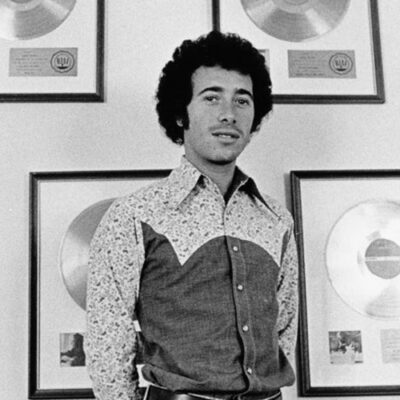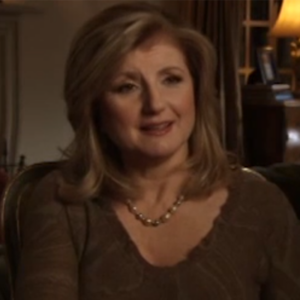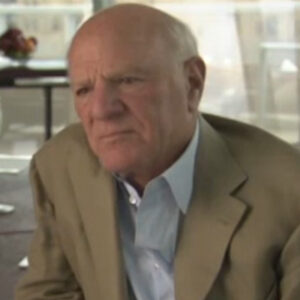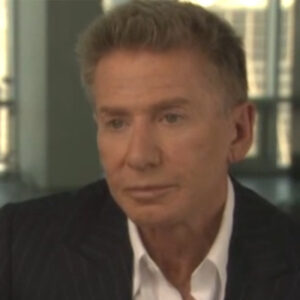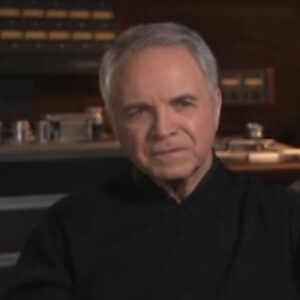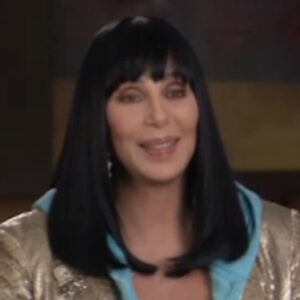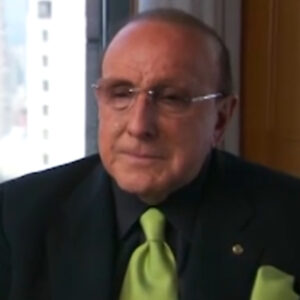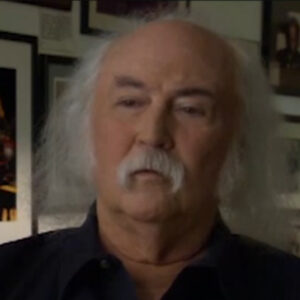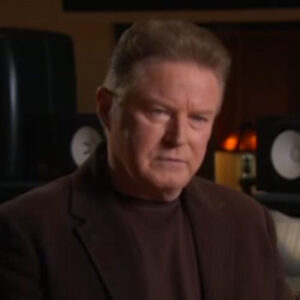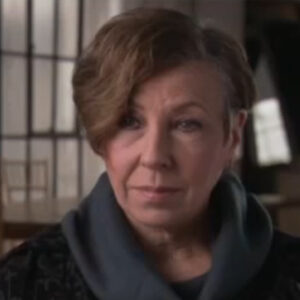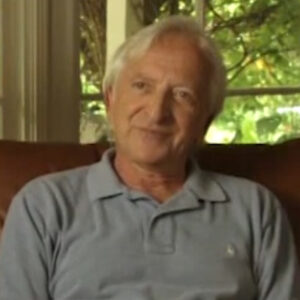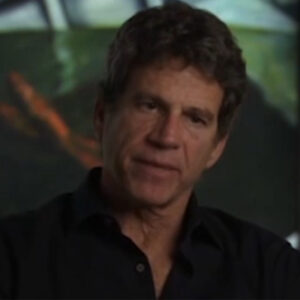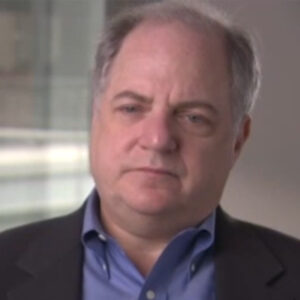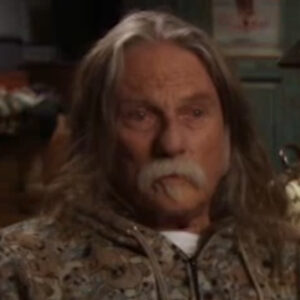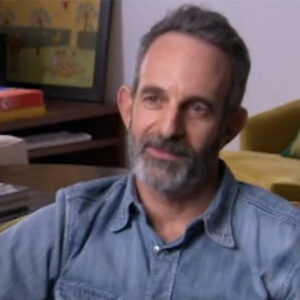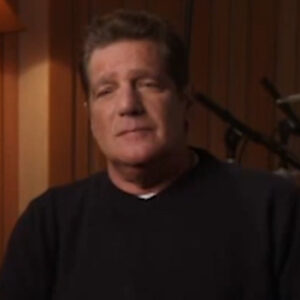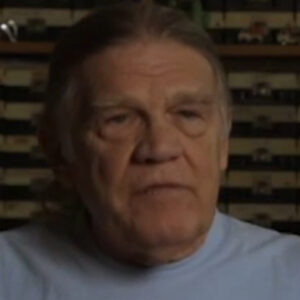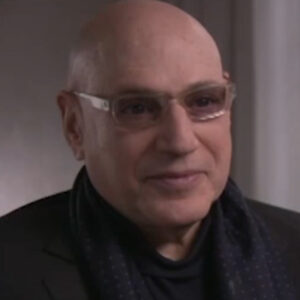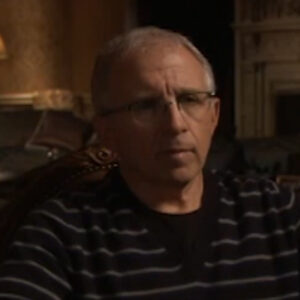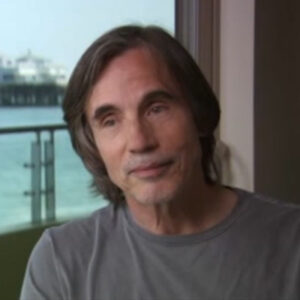Speaker I met David back in nineteen eighty seven or something.
Speaker I was after I don’t Pee wee’s Big Adventure and I was looking for other movies to do and I was getting offered like talking horse movies and just kind of pretty lame comedies. And then he said, David sent me this script and I thought after reading all these scripts, I thought, wow, somebody at High wants to make a script that I don’t understand at all.
Speaker It just seemed to completely go against any kind of normal kind of Hollywood script that I had been reading. So I was quite intrigued that, you know, somebody from a studio or from, you know, a major producer wanted to kind of do a movie that seemed this kind of abstract. Like David said, you well, somebody from his company. But they they came to me with this.
Speaker Yeah. I thought, you know, they had it was it was it was it was the script.
Speaker It was in rough form. It was it was very sort of nondescript.
Speaker But it makes me look like I have alien eyes.
Speaker It’s better. I wasn’t going anywhere.
Speaker I saw the other night. Yes.
Speaker And he said that he said that they had seen it and everybody thought that they were you.
Speaker Yeah, it was it was really it was it was really nice because like I said, I just read a very sort of traditional scripts. And it was, you know, those early experiences for me were very formative because it made me realize there are people, studios and things that want to do interesting things.
Speaker And, you know, this movie I thought Peewee was a strange movie.
Speaker Beetlejuice was even stranger to me. So I thought, wow, maybe we’re going somewhere here.
Speaker Now, what did you I mean, what did you know, David?
Speaker Well, I mean, I only you know, I’d known his name. I knew he’d been very powerful in the music industry and was very at the time, he was a big producer at Warners. I mean, he was one of their main. And, you know, it was nice to because I think they looked at him to doing things that were interesting. I mean, they had their things like, okay, these are the moneymaking thing. But, you know, they seem to look to him for somebody to kind of do, you know, commercial get interesting projects and the way they’re described and they got to be the studio. Well, I could see them passing on this because it was like I mean, you know, I’m an abstract person and I didn’t even understand the script, you know, so it was it was. But that intrigued me even more.
Speaker So why did David it it.
Speaker To this day, I don’t know.
Speaker I mean, I remember there came a point at the end of the film when we were doing the marketing and the studio came in and said, you know, we’ve done research on the movie and nobody likes the title Beetlejuice. We we want to change it. They gave me this stack of research ethics that we’ve tested than and the title is Testing Better is House Ghosts. And I just saw it and they did a poster. I thought, oh my God, I’m just going to jump out there. It’s like direct to video movie. And I’m here with this big meeting. And David was there and I couldn’t tell throughout the meeting which way it was going to go. I mean, was it going to go, you know, market research house goes or was it gonna stay with Beetlejuice? And I just remember, I mean, arguing and, you know, threatening to jump out the window and all sorts of things. And, you know, finally, he kind of David was the one that sort of China said, you know, we’ll stick with Beetlejuice.
Speaker And I still never quite you know, it was just like, well, that’s just the way it’s going to go.
Speaker I mean, because you can’t really verbalize, I guess, why you would argue for a title like that. But I mean, I’m very grateful that that that ended up that way because it could have tipped the balance of what the movie was.
Speaker Yeah, no, because I can. Housecoats was a direct video title right away.
Speaker Yeah. I mean, I needed it. Yeah. Didn’t need that kind of help.
Speaker So just going back a little bit, when you first I assume you that even at the beginning you never met before.
Speaker Yeah. I mean that’s the the A’s days where I was a bit more because I was bit more directly out of the animation.
Speaker So I was a bit more of a non-verbal person, I think.
Speaker I mean, David, I still can recall him looking at me, trying to figure out what I’m talking about, you know, and he say something like and you say, yeah, he said you said to me once and I and I didn’t realize until then.
Speaker He said, I used to speak in, like, every fifth word and in the in sometimes even raced ahead of that. So. Could see people try. But at least he tried to understand what was going on and I appreciated that. But yeah.
Speaker I mean, I felt like it said those early your days were very important because I wasn’t a good communicator.
Speaker So it was nice that.
Speaker You know, somebody like him would allow me to be somewhat non-verbal and still do the job. And so, you know, I was very grateful to that kind of struggling through my communications.
Speaker And what do you think? David Geffen was the typical studio guy.
Speaker Now, he was in a tipplers studio guy. I mean, he gives I know. You know, I know he was into lots of different things in art and music can make movies.
Speaker I never felt like he was that into movies. I think he was into certain projects and he was passionate about. But he didn’t. And he seemed to really indicate that. I mean, a lot of people kind of like get some roped into doing a project cause you got to keep a pipeline going. But I never felt like he just if he was interested in a project, but it’s not he was not out to have a slate of movies or anything. And so that kind of singular passion seemed interesting. It didn’t seem like any kind of studio executive casual that.
Speaker Well, yeah, those in his office once and I heard him get angry at somebody on the phone and I thought I went white.
Speaker I said, I hope this guy never gets angry at me because, you know, it was like. Withering death ray of love. I never see anybody get that angry. And then, you know, get on the phone and go. So what were we talking about? Okay.
Speaker But yeah, no, I mean, he did. It wasn’t sincere.
Speaker It seemed rule by you know, he’s just he’s got what seems what’s in his mind and he goes for it.
Speaker Which, you know, which is sort of unusual.
Speaker Usually there’s a hierarchy. People are checking with other people and, you know.
Speaker Yeah. People get very sort of parent were nervous about what other people think.
Speaker I don’t get the sense that he’s very worried about what other people think, you know, and it’s just kind of keeps the focus of what you’re doing and, you know. Yeah, it’s it’s it’s it kind of cuts to the chase and gets more focused. You know, there’s a lot going on making a movie or anything. And so you want to kinda minimize things that aren’t really helping get the thing done and kind of just get right to it.
Speaker So do you have anything to do with.
Speaker Oh, yeah, well, I mean, you know, early days when we were casting Beetlejuice, I think that I think my. My casting idea was I wanted Sammy Davis Junior for Beetlejuice and that serve, I’ll never forget being in a meeting with that and just.
Speaker That’s the first time I ever heard deafening silence. You know, I mean, that was. Well, jeez, he’s from the music industry. David, do you know. Come on. Come on. Give me. But I know.
Speaker And I think it was him or somebody from the idea of Michael. And I didn’t. I didn’t really know Michael that well or know very well. But obviously, it was a great idea. And when I met him, it was perfect. So, I mean, that got a whole new thing for me because I got, you know, me sort of like him and these other actors improv.
Speaker So it was a really exciting. It was it was it was a good call.
Speaker I think at the end of the day, even though I still think about it, Michael is much better.
Speaker Michael was the right call on that.
Speaker No. Let me come to you at 16 because you thought, well, the movie ended up because it was such a strange script.
Speaker It ended up been quite a bit more improv, maybe because of people like Michael Keaton and, you know, like Catherine O’Hare, these people that were good improv people, a lot of it just kind of took on a life of his own, which was great. And that was the other great thing about it, is that, you know, because it was a strange script. But they still allowed for this kind of thing to happen. So, you know, we were kind of improving every day and. Yeah. And Mike was such a great, you know, just first time meeting him, you see the energy and what he brought to it. You know, so, yeah, we were adding kind of things all the time.
Speaker You know, I think, Michael, it done he did a big movie.
Speaker What was that movie with on Howard Henry? Well, I think I think he had the night shift. Michael. And but I was it really you know, I didn’t get out much, so I didn’t really know people that well. But said I didn’t even see that. I just met him. And it was it was the right idea.
Speaker I mean, he that was a big deal.
Speaker Yeah. I mean, it was great because I think, you know, I think a lot of people. It happens now. It happened then. You know, people are known as comedians and they can’t get stick. Same thing. They got to get put into law like you’re the, you know, leading young man. You’re funny, but you got a girlfriend and a kid, you know. It kind of has a tendency to kind of bland out certain people with talent and comedians especially.
Speaker So I think you’d gone through maybe doing some movies that were kind of portraying him and putting him in that light. So this was like a great way of just doing some different putting on makeup and, you know, kind of unleashing a sort of inner creature, you know, that he has it. And just wildness and humor that. So. So it was great. I mean, it was exciting to be a part of because it felt different.
Speaker And then he went on to work with again. Yeah. No, I mean, it was great. It was like I said, he was one of first people.
Speaker Well, I’ve been lucky with like, you know, but he was really good at improv. And it was just really fun to work with.
Speaker It was good.
Speaker And it totally stayed out of it.
Speaker Yeah. And when it came down to the end with with the title, which was a big deal, which was a really, really big deal because even, you know, you’d have those test market screens. And David, he I just felt he was very you know, you knew what was going on, but he just held back. And I appreciate that because, you know, it’s just nice when people, you know, they ask you to do something and then they let you do it.
Speaker You know, that’s. As opposed to asking you to do it. Then try to micromanage everything that’s going on. I mean, this is really something great about that, where, you know, somebody they ask you to do something and then they allow you and then they’re there to kind of oversee it. And, you know, like I said, any time there’s there was only that issue.
Speaker And like I said, it turned out I mean, I didn’t know that meeting and he could have gone, gee, I love that housecoats.
Speaker That sounds such a great I mean, he could, but thank God he didn’t, you know? And so I was that was a real big deal to me.
Speaker I feel like I said about to discover that he said that was one of the great things. You know, certainly you represent guys who he was like, hey, I don’t know if I agree with you on that choice, but I’m going to back.
Speaker Yeah. I mean, he did that with the movie.
Speaker I mean, I don’t think Warner Brothers wanted to do Beetlejuice.
Speaker I mean, it’s not like, hey, I read the script.
Speaker I read I said it is a man with vague Middle Eastern features, you know, talking to a teenage girl. And you’re kind of going, gee, this sounds like a great movie.
Speaker You know, it’s like, yeah, it was a weird thing, too. And like I said, I would think about it off because I kind of knew what I liked about it, but I couldn’t quite figure out what anybody else liked about it. But there yeah, that’s the mystery of movies, you know.
Speaker Well, my question to you is something you’ve done risky business for.
Speaker All these films that he was putting money up for were kind of not so mainstream.
Speaker Not at all. I mean, he is not at all.
Speaker And at the time, too, it was as you know, now there’s a bit more. You know, you get that sort of specialty units or things that kind of specialize in strange or more offbeat projects. And at Warner Brothers, at that time, there wasn’t that kind of thing. He was kind of doing that himself.
Speaker By the way, so seminal for every movie in so many ways.
Speaker It don’t be offered. It’s just, you know, the game is gone. Yeah, well, yeah.
Speaker And that sort of evolved. It wasn’t weirdly there at the beginning and again. So it took on kind of organic process.
Speaker But like I said, I don’t think that would have happened in the confines of a regular, you know, sort of studio situation.
Speaker I feel like I read that I could be wrong. I feel like I read something that David had done some and recently discovered that teenage boys were very important to the film and everything. And they went to certain markets during the afternoon when kids would come out.
Speaker You know, I they they might have done that kind of stuff. I, I wasn’t at that point. I wasn’t very aware of all that stuff. I was just kind of focused on the film. Yeah. Yeah. No, I mean, I remember I remember when I first because I had a weird say, you know, I know like it got like a lot of bad. It was interesting because got a lot of bad reviews. And I remember one in particular that made me realize, well, this might work because the guy gave it like one out of 10, one being worse.
Speaker This one gets a minus three and it’s just hard to describe it and how much he hates it.
Speaker They showed a clip behind him and it made the movie look so good and it made it look like it made it look like the movie was going like due to this guy.
Speaker And it was like, great. It was a weird moment.
Speaker It made me feel like, oh, you know, this this, this.
Speaker There might be something to it in a way, but, you know, they couldn’t categorize it, which was good. It’s always scary to them. But, you know, David kept. I mean, he must have done some. I didn’t know because like I said, I don’t know why they wanted to do it. It was a.
Speaker They’re not conventional. So I did you guys were good friends.
Speaker Well, yeah, I mean, we’re you know, I don’t you know, we don’t go hang out. But I mean, I every time I see him, it’s great. So, you know, it’s it’s, uh, we have worked together since. But no, I’ve always been a great experience. Whenever I see him. It’s great. You know, it’s easy.
Speaker Well, you.
Speaker Yeah. Yeah. Sweetheart, I hadn’t seen him since then. And again, he was really supportive on that.
Speaker Again, another movie which. Not, you know, let’s make an R rated musical, lots of blood.
Speaker You know, that’s not like high in the studio hit list. But again, this. That was, you know.
Speaker And, yeah, believe me, making a movie like, you know, Sweeney Todd or Beetlejuice, you really that just the feeling of a kind of support, is it credibly?
Speaker Important, I mean, for you, but also for them.
Speaker Yeah. People don’t realize, you know. It’s good to, you know.
Speaker It’s a hard thing to do, but it’s good to kind of support the people that are doing, you know. Working with you. So. You got that?
Speaker The question. All right. So no idea what what was. What did people think when he and Spielberg and Katzenberg were starting this studio? I’m reading like, hey, I didn’t think David Geffen was used to that.
Speaker Well, I don’t know, maybe it’s the same as like when the Pep Boys for I just I got that image of the Manny, Moe and Jack. I don’t know why. In my mind, it doesn’t mean anything. Well, I mean, look at. Three of the most powerful, you know, I mean, you know, they know what to do.
Speaker I mean, I think it’s always about, like, just trying to create an environment where you can do the best work.
Speaker And, you know, people think it’s all just down about control. It’s about doing the best work with the least amount of crap that you have to deal with. So I think, you know, the three those guys different strengths.
Speaker Yeah, and with big well, now the David is kind of, I don’t know. Retired. I don’t know.
Speaker I mean. I mean, what do people say? Is he sort of like the time bother. What? Hollywood. I mean, what do people think of him now? Is he out of the game? People still seek his advice. I mean, what is he?
Speaker Three people. With me, it always seems like he’s the sorry. He was out of it. He was out of the movie business back at Beetlejuice, wasn’t he? No, no. He seems. But that’s the thing. I don’t he he likes. I think he likes what he likes. He likes private mean. Yes, he likes certain movies, but I didn’t like the movie business and he likes making, you know. Artistic person wants to do things so I don’t know. I mean, I. I mean, I wouldn’t want to be you know, that’s why I live in London, hopefully. But, you know, I don’t think you ever really you know, he’s still in there somewhere. I think he’s dead. Like the Wizard of Oz. Pay no attention to that man by the curtain.
Speaker But there he is. He’s there.
Speaker Though he just it’s a great freedom you can do. You know, you do the things that you want to do.
Speaker And, you know, I mean, especially is is after you’ve been in it for a long time, you really only want to do the things that you want to do.
Speaker And David is certainly. Well, certainly a lot of money, that’s for sure. He certainly risen to a level his career, his life that I don’t think he even imagined for himself.
Speaker Well, that’s that’s the kind of people that are great, the ones that don’t expect it. And, you know, they work for it and they get it. You know, it’s like, well, that’s the you know.
Speaker You know better than being handed to you all that. That that’s that creates, you know, somebody who’s drive and passion and energy and, you know, it’s good.

